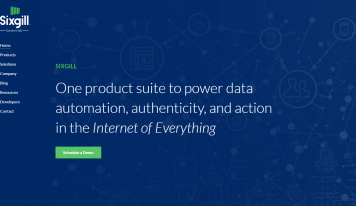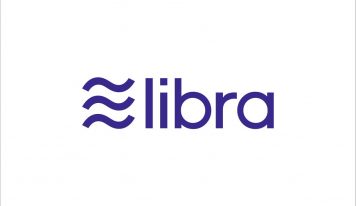Guest Post By Monica Eaton-Cardone
Click fraud. It’s not a threat source that impacts every online business. That said, most merchants engaged in driving sales through online advertising are probably more familiar with click fraud than they’d like to admit.

Click fraud occurs when a third party deliberately clicks an advertising link like a banner ad, while having no intention of purchasing the item advertised. This can be perpetrated in several different ways:
- Click Farms: While usually associated with users inflating their social media following, one may also carry out a coordinated attack against an advertiser using the same method.
- Hit Inflation: A seemingly legitimate link directs users to an ad page for a split second before directing them to the content they’re seeking. This makes it seem that the users genuinely clicked on the ad page.
- Bots: Fraudsters can infect thousands of users’ devices with malware. The bots then passively rack up clicks using the devices without their owners’ knowledge.
Why would anyone engage in click fraud? Well, there could be several reasons. For instance, an unscrupulous competitor may engage in click fraud to deliberately hurt your bottom line. On the opposite end of the spectrum, it could be a friend or relative who clicks on your ad without realizing it is costing you money. Most often, though, click fraud is used as a method to commit affiliate fraud.
This is a serious problem for online advertisers. It’s believed that the practice cost businesses roughly $7.2 billion in ad revenue in 2016; about one-third of all digital ad spend is now lost due to click fraud…and the problem continues to grow at a rate of 50 percent per year.
Fortunately, blockchain technology may present a solution to this problem.
Blockchain May Help Eliminate Click FraudYou’re probably familiar with blockchain technology as a tool for managing digital payments, or maybe for recordkeeping and order fulfillment. However, the tool has many applications beyond those areas, such as helping businesses mitigate the risk of click fraud.
The open ledger model on which blockchain technologies are built allows for transparency and accountability at every stage of a process. As a result, businesses can much more easily identify who accounts for what share of their ad spend. If specific users or nontargeted areas generate an outsized portion of clicks, that should raise an immediate red flag.
Beyond the transparency, some advertisers have even posited that blockchain adoption would make it possible to cutout the advertising middleman (i.e., ad agencies, vendors, and affiliates), and serve ads directly to consumers. This would be possible because blockchain systems may be more reliable than existing methods for tracking performance and traffic.
Even beyond that, imagine if a centralized system experiences a major technology failure, natural disaster, or other emergency. This could force certain aspects of the business—like serving ads to potential customers—to grind to a halt.
Blockchain technology, however, is a distributed system. This means if one or even or multiple nodes within the network fail, processes can still go on with minimal disruption.
Why Hasn’t it Been Adopted Already?As mentioned above, some advertisers are toying with the idea. No major brands have gone all in yet, though. In fact, one survey conducted last year shows that only 11 percent of advertisers have ever completed an ad buy using a blockchain. 45 percent of respondents said they had no plans to do so any time in the foreseeable future.
Why is this? Well, there could be several factors at play. For instance, there are widespread concerns about the energy efficiency of blockchain systems. Speed is another serious concern; the same survey showed that 55 percent of respondents felt blockchain technology was too slow or handle media transactions.
A blockchain system is, after all, a network of computers, and a computer can’t process infinite amounts of data at one time. Aging devices could compound this problem, as blockchain technologies rely on striking a consensus between all the devices on the network. When those devices age and slow, so may the consensus process.
As much as we love new technologies, no one wants to be a guinea pig…especially with their livelihoods on the line. Even if blockchain technology presents some clear advantages, we’re still several years out from any widespread adoption. Fortunately, blockchain tools aren’t the only hope for reducing the threat of click fraud. Here are a few helpful strategies to prevent click fraud losses:
- Educate Yourself: Learn about the various methods fraudsters use to conduct ad fraud. They engage in cookie stuffing, domain squatting, IP spoofing…and much more.
- Track a Variety of Metrics: The more numbers you’re able to track, the sooner you’ll notice if something’s amiss, and the better you can be at targeting your users.
- Advertise on Quality Sites: Low-quality sites attract more click fraud. You want to target users effectively so ads appear on high-quality outlets where your customers will see them.
- Don’t be Afraid of Being Choosy: While it’s a risk to exclude entire regions from targeting, there are some reasonable gambles you can make. For instance, you don’t need to target surfboards to Siberia.
- Advertise More on Social Media: Sites like Facebook have access to in-depth user data. You can target much more effectively here than you can on other third-party sites.
Blockchain could be the future of online advertising, but we’re not there yet. Even then, it’s not going to be a silver bullet that will wipe out all click fraud. You must take steps to mitigate your risk and be proactive about this and other threat sources.
About the Author
Fintech expert Monica Eaton-Cardone is co-founder and chief operating officer of the global fraud prevention and chargeback mitigation company Chargebacks911.
Learn about the latest in everything you need! Blockchain, UCaaS, the Channel, IT, IOT, Edge, Cybersecurity, AI, SD-WAN, and the Future of Work at the world’s only SD-WAN Expo and MSP Expo, part of the ITEXPO #TechSuperShow, Feb 12-14, 2020 Fort Lauderdale, FL.







